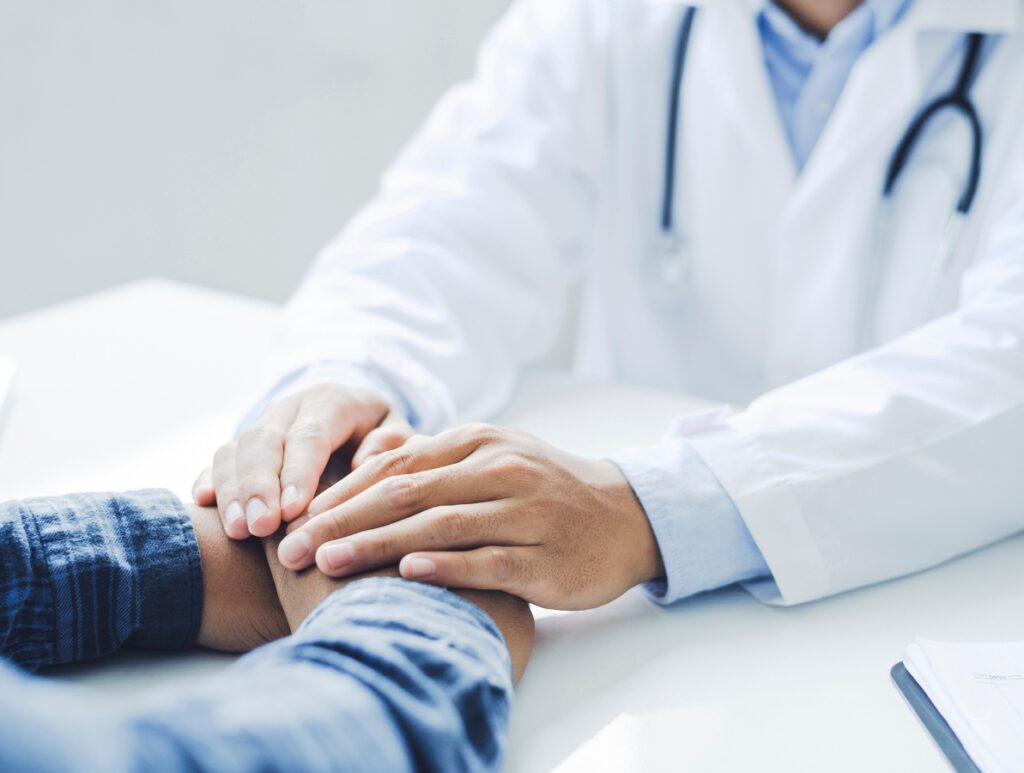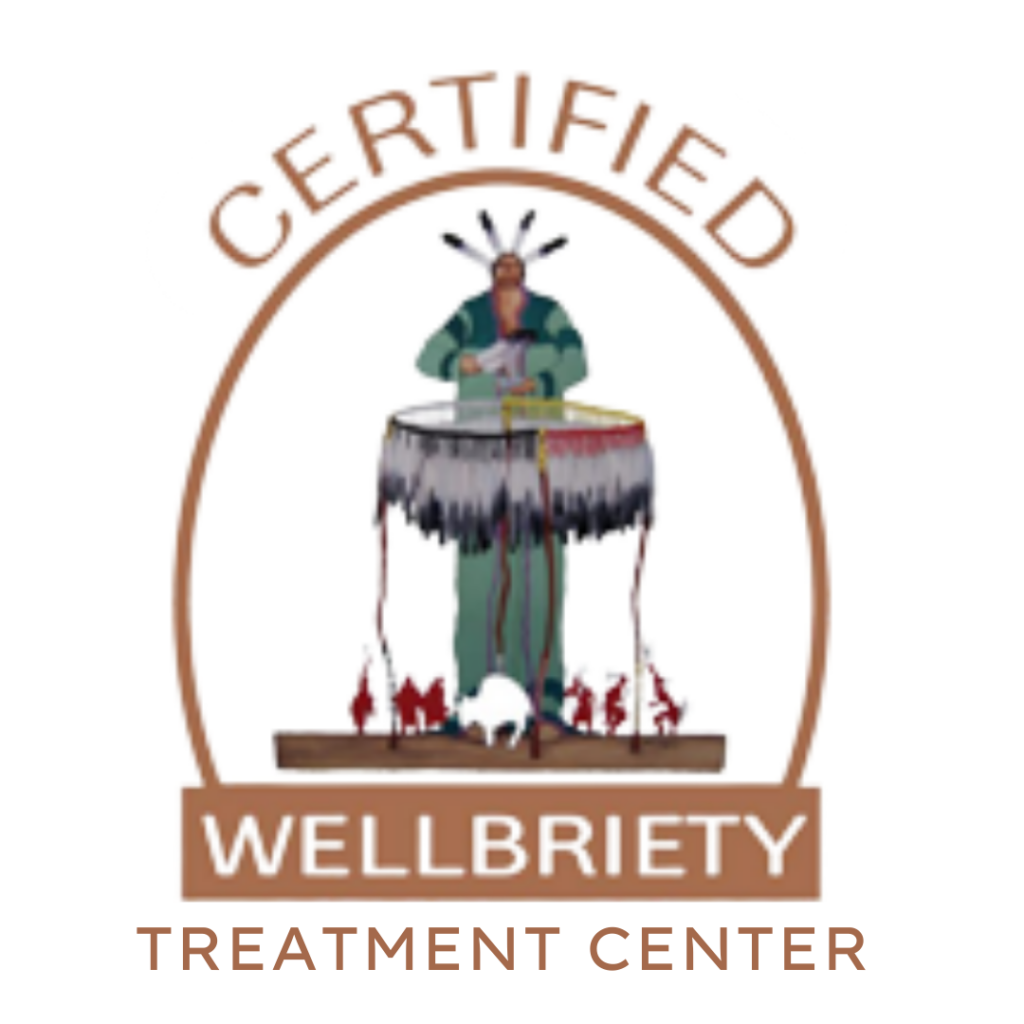Opioid Detox
Due to the risk of health complications, relapse, and overdose, it is not safe to detox off of opioids on your own. When provided in a quality opioid detox center, it is possible to safely and effectively manage symptoms of withdrawal while minimizing the risk of relapse.
Royal Life Centers at the Haven aims to make opioid detox safe and comfortable. Our cutting-edge detox facilities and extensively trained medical personnel provide a seamless transition for our guests as they progress toward the next stage of their recovery journey.

What Is Opioid Addiction?
Opioid addiction develops similarly to other addictive substances. When an individual consumes an opioid in any form, they experience a euphoric rush that suppresses pain and distress. The intensity of this rush varies based on several factors, such as the strength and dose of the drug.
However, the resulting effects are consistent in their addictive nature, triggering a sense of calm or an uplifted mood. This is because illicit and prescriptions interact with opioid receptors in the brain. As an integral component of the brain’s reward system, these drugs bind with receptors and cause a release of dopamine, the “feel-good” chemical.
The National Survey on Drug Use and Health (NSDUH) estimates that more than 9.5 million people misused opioids in 2020. These drugs can be purchased on the street, or obtained legally in the form of a prescription at any local pharmacy.
How Do People Get Addicted to Opioids?
Substances like heroin or morphine activate such pleasure receptors, which makes the person feel good. However, over time that person builds up a tolerance to opioids, so they must take more to achieve the same effect. After a person develops a physical dependence on opioids, they begin experiencing withdrawal symptoms if they stop taking the drug.
Opioid withdrawal symptoms are uncomfortable, impossible to ignore, and often all-consuming. Since people feel sick after periods without using opioids, it can be incredibly difficult to stop abusing opioids, especially if the person tries to detox off of opioids on their own. At this point, people typically need professional treatment in an opioid detox center.
If you or someone you know is struggling with opioid abuse, please reach out for help today.
What Is Opioid Withdrawal?
Substances like heroin or morphine activate such pleasure receptors, which makes the person feel good. However, over time that person builds up a tolerance to opioids, so they must take more to achieve the same effect.
Opioid withdrawal occurs when the person has gotten so dependent on the drug that they feel sick after periods without it. At this point, quitting is difficult, especially if the person tries to do it on their own. Withdrawal symptoms are uncomfortable, impossible to ignore, and all-consuming. Drug withdrawal symptoms can occur within hours of the last dose and may persist for up to seven days.
Early symptoms of opioid withdrawal include:
- Agitation
- Anxiety
- Insomnia
- Muscle aches
- Runny nose
- Sneezing
- Sweating
- Teary eyes
Late symptoms of opioid withdrawal include:
- Nausea
- Vomiting
- Abdominal cramps
- Diarrhea
- Dilated pupils
- Goosebumps
Due to the nature of opioid withdrawal, many people find it difficult to come off opioids without medical supervision. On top of these symptoms of withdrawal, people also experience intense opioid cravings, which can further delay the recovery process.
Without seeking treatment, people can become overwhelmed by their cravings and withdrawal symptoms, leading to relapse and an inability to break free from opioid dependence. The longer they abuse opioids, the harder it becomes to quit, making it more likely that they’ll overdose or have serious health problems.
Self-Assessment: Am I Addicted?
The Dangers of Opioid Abuse
Unfortunately, the body can only take so much, and eventually, opioid abuse often leads to an overdose. Even if someone has used drugs of the same type before, they can never be certain what it will do to their body this time around. Not to mention, people never know the potency or true identity of drugs purchased on the streets.
Due to the recent influx of fake pills and street drugs laced with fentanyl, drug abuse is a game of Russian roulette now more than ever. In 2020 alone, the Centers for Disease Control (CDC) report through the National Center for Health Statistics (NCHS) found that roughly 69,000 people died as a result of an opioid overdose with 82% involving synthetic opioids.
To make matters worse, many people who attempt to detox off of opioids themselves end up relapsing, which can increase their risk of overdose. For this reason, it is essential to seek professional help from an opioid detox center.
What Causes an Opioid Overdose?
Once someone begins abusing opioids, they often find it difficult to stop. With each successive dose, the person’s body begins to build up a tolerance to opioid drugs. Tolerance means that they require increasingly higher doses in order to achieve the same level of relief or euphoria. This is because repeated exposure leads to changes in brain chemistry that ultimately reduce the effectiveness of opioids over time.
As tolerance builds, so does the risk of accidental overdose, as individuals take more and more of a drug in an attempt to achieve the desired effect. As tolerance builds, so does the risk of accidental overdose, as individuals take more and more of a drug in an attempt to achieve the desired effect.
Another common way people overdose on opioids is during a relapse—when individuals increase their dosage after a period of abstinence, without realizing how much their tolerance has decreased.
Opioid overdose is also possible when large doses of opioids are taken at one time, or when opioids are combined with other types of depressants such as alcohol or benzodiazepines. This is also the case when individuals switch to stronger opioid drugs, such as heroin or fentanyl, without recognizing the strength of these substances or adjusting their dose accordingly.
Signs and Symptoms of an Opioid Overdose
Due to the serious nature of opioid overdose, it is important to recognize the signs and symptoms so that people can seek medical help in time to save themselves or someone else’s life. Signs and symptoms of opioid overdose include:
- Clammy skin
- Vomiting
- Constipation
- Confusion
- Bluish skin coloration
- Shallow breathing
- Slow heart rate
- Loss of consciousness
- Coma
- Death
It is important that individuals seek professional help for addiction to opioids and other drugs to prevent overdose and death. Getting help for opioid addiction can be a difficult process but it is important to remember that recovery is possible with the right support and treatment. Opioid addiction treatment is available to help individuals overcome their drug use through a range of treatment options to meet each person’s needs.
In the event of an overdose, it is vital to seek medical attention immediately as opioid overdoses can be fatal without prompt treatment. It is incredibly important to know how to respond to an overdose situation by administering the appropriate medications and contacting emergency services.
If you believe someone has overdosed on opioids, call 911 immediately. The person can be given a potentially lifesaving drug called naloxone (brand name Narcan) that can reverse the effects of an opioid overdose.
Have any questions?
Opioid Detox
Recovering from opioid addiction can be an incredibly challenging experience. That’s why quality opioid detox programs offer a medically supervised environment designed to help you safely and successfully come off of opioids. Through the use of evidence-based treatments, opioid detox centers can help you safely and effectively detox from opioids in a safe, comfortable treatment setting.
Recovering from opioid addiction can be an incredibly challenging experience. That’s why quality opioid detox programs offer a medically supervised environment designed to help you safely and successfully come off of opioids. Through the use of evidence-based treatments, opioid detox centers can help you safely and effectively detox from opioids in a safe, comfortable treatment setting.
As the first step in recovering for opioid addiction, opioid detox centers can provide medication-assisted treatment (MAT) services to reduce the severity of withdrawal symptoms. In addition, opioid detox centers help people cope with cravings, triggers, and other stressors to promote a sustainable recovery. Through the use of therapeutic interventions, these programs also provide emotional support throughout the detox process.
Detoxing From Opioids at Royal Life Centers
Royal Life Centers at The Haven offers comprehensive treatment for individuals struggling with addiction to opioids or any other type of substance. Our evidence-based approach is designed to address both physical and psychological aspects of addiction, helping guests achieve long-term recovery. We provide a safe and supportive environment for healing, where our team of professionals work closely with each person to develop the best treatment plan tailored to their individual needs. Our goal is to help every person reach their full potential and lead a life free from addiction.
We understand that the early stages of recovery are delicate and that it is critical, even after one has detoxed from opiates, to continue to monitor a guest’s vital signs. At our facility, clinical and medical staff are available 24 hours a day. Our physicians are here to help correct chemical imbalances that contribute to depression, bipolar disorder, and anxiety.
Although detox is the first step toward recovery, it is important to note that detox and residential treatment are meant to go hand-in-hand. While detox treats the physical part of drug dependence, inpatient rehab treats the roots of substance use disorder.
What to Expect During an Opioid Detox
A medically supervised opioid detox will involve tapering off the drug in a controlled setting, with 24/7 medical supervision. During treatment in an opioid detox center, treatment providers can provide non-addictive medications to assist in reducing the physical and psychological symptoms of alcohol withdrawal. For example, clonidine is often used to reduce agitation, anxiety, muscle aches, and cramping. Other detox medications can treat symptoms of nausea, diarrhea, and insomnia.
Likewise, clinical staff can utilize medication-assisted treatment (MAT) services for guests on a case-by-case basis. MAT programs provide medications for opioid use disorders (MOUD) like Buprenorphine (Suboxone) or methadone to reduce withdrawal symptoms and cravings. The goal of MAT, and all opioid detox services, is to alleviate physical withdrawal symptoms and reduce cravings, providing the recovering individual the ability to focus on their recovery.
To assist guests in healing from opioid addiction, detox centers also provide behavioral therapy and counseling services. These intensive therapies are tailored to the individual’s needs and strengths areas to help them process their addiction, develop healthier coping mechanisms, build insight into their triggers, and create an action plan for long-term success.
Are you looking for help with addiction? Let us support you on the path to lasting recovery
Our Opioid Detox in Washington State
Royal Life Centers is committed to providing top-quality care, from our clinical team to our amenities and activities. It is our mission to make sure that every guest receives the best care possible so that they can successfully transition into a life of sobriety and take on the journey of recovery.
Throughout our opioid detox program, we provide a comfortable setting with amenities such as meals prepared by private chefs, fitness centers, massage devices, and recreational rooms to ensure that each guest is as comfortable and relaxed as possible during their stay. Our opioiddetox facilities also provide spacious guest suites and monitored outside spaces where guests may enjoy the fresh air and stunning Pacific Northwest vistas.
At The Haven, we strive to provide a safe, supportive environment so that you can focus on healing from opioid addiction. Our team works hard to accommodate each guest’s individual needs to ensure that they are comfortable and motivated to continue on a lifelong path of sobriety.
What Happens After Opioid Detox?
Guests who move on to inpatient treatment following opioid detox learn to live independently from substance use. Residential treatment offers a safe space for guests to recover and begin to heal. In treatment, guests will attend several intensive therapy groups seven days per week. Upon arrival at our center, guests are introduced to their primary therapist with whom they will work closely during individual sessions.
We teach those who are overcoming substance use disorder how to cope with emotional stress without drugs and/or alcohol by countering negative thought patterns with individual and group therapies. Royal Life Centers equips guests with the tools needed for a long, successful recovery from substance use disorder. Because We Care.
Looking for Opioid Detox Services?
If you or someone you love is struggling with opioid addiction, please reach out to us to find out more about how our opioid detox services can help. We work with most private insurance policies and we have affordable self-pay rates if you do not have insurance. Give us a call and we will figure out the best treatment plan for you or your loved one.
Because We Care.

Would you like more information?
If you or someone you know has a substance use disorder, we hope you’ll begin your journey with us at Royal Life Centers.
If you would like to learn more Other Resources
Change your life with one call.
We can help.


















